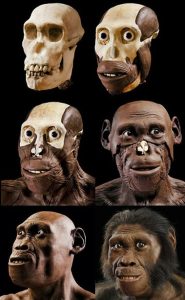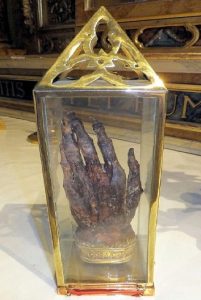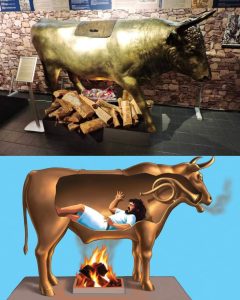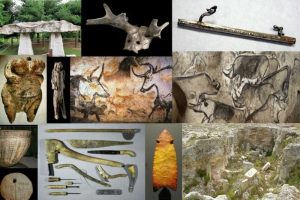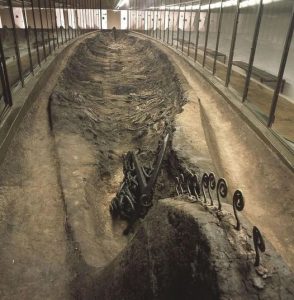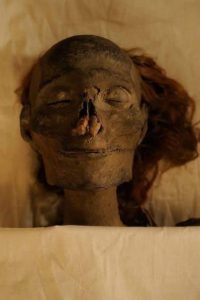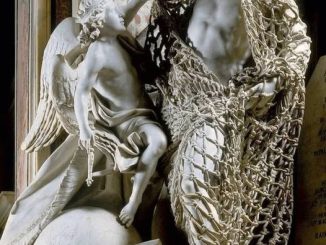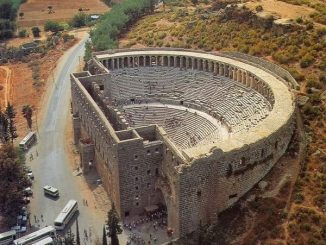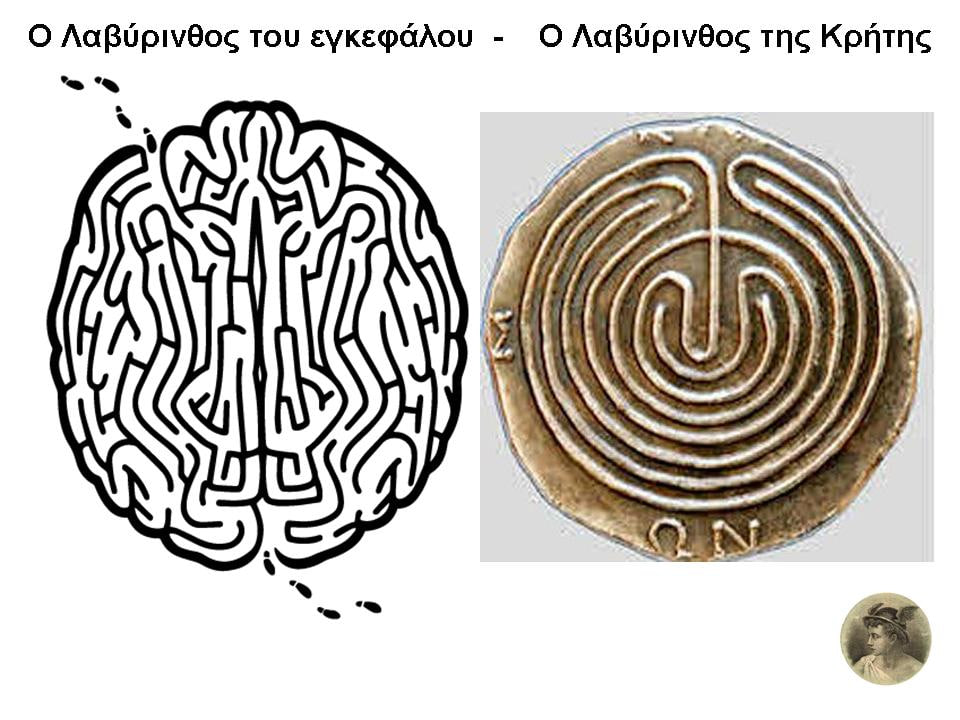
“Man with thought interferes with matter, while with mind he transcends matter.” Socrates.
According to the legend, Minos’ wife Pasiphae fell in love with the bull that the god Poseidon had given Minos as a gift. Poseidon asked Minos to sacrifice this bull to him. But Minos instead sacrificed another bull, hoping that the god would not notice. But Poseidon realized what had happened, got angry, and made Minos’s wife Pasiphae fall in love with the bull.
Pasiphae could not satisfy her passion and asked the engineer Daedalus for help. He constructed an empty cow effigy, Pasiphae entered it, and the bull was tricked into mating with her. From this union the Minotaur was born.
The Minotaur, like all monstrous beings in mythology, represent animal passions, mental weaknesses, defects, perversions and phobias, which dissolve when they come to the light of the Sun, that is, when their causes are illuminated by inner knowledge (Sun – Apollo), that is, the initiation, “the spiritual light”, which is described as the midnight sun.
Theseus, descending into the labyrinth of Crete, killed the terrible Minotaur, to whom seven young Athenians and young women were sacrificed every year. The descent of Theseus into the labyrinth, and the killing of the Minotaur, concerns a symbolic “initiative process”, through which man can emerge victorious from the dark world of the unexplored “labyrinth of the brain”. The Labyrinth is the unknown aspects of our brain (compare the shape of the brain and the labyrinth), the “Minotaur”, is the subconscious, the passions, the phobias, the addictions that can trap us, subjugate us.
The brain is not just another organ in our body. Our brain has the ability to grow on its own, learn new things and adapt to the changes in our lives. Most of the brain’s potential is unexplored and unknown even today, in the scientific world, since it is very difficult to study and record it. Until recently, we thought that we only use 10% of its potential. Modern researchers argue that this is not the case. The parts of the brain – they note – also work as a whole and it is not possible for any of them to be inactive. In fact, recent research has revealed that brain cells can continue to form and that each new learning probably contributes to their longevity…
Theseus in the myth we are considering represents self-awareness, the conscious superior man, who sacrifices the ego for the we. Arriving in Crete, Theseus meets the daughter of Minos, Ariadne. Theseus promises Ariadne eternal loyalty, and she advises him how to get out of the labyrinth. The Labyrinth architect Daedalus offers her the solution. So, Ariadne gives Theseus a tangle to tie at the entrance of the Labyrinth, with the advice to unravel it as he goes. If he succeeded in getting rid of the Minotaur, he had only to wind the tangle again, walking back, until he came out again. Self awareness..!
Theseus emerging victorious from the dark labyrinth, confirmed the characterization of the hero, winning at the same time a kingdom, that of his superior nature. We live in the Labyrinth of our programmed mind’s subjective perception, in a world of appearances, of “appearance”, rather than actual “being”, a reality shaped by our imperfect five senses.
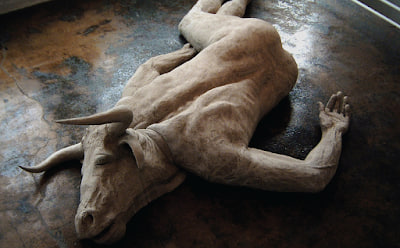
Minotaur, Sculpture by Emil Alzamora
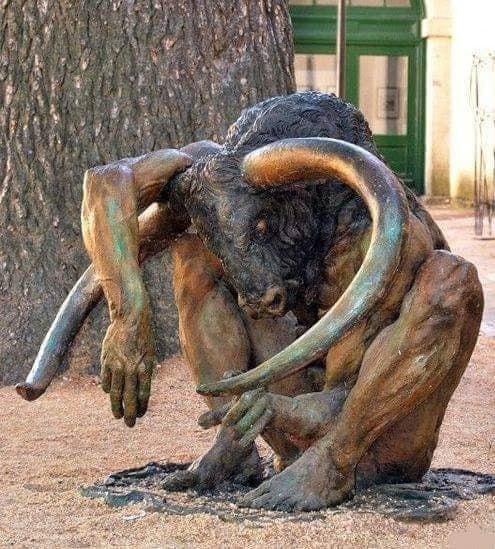
Minotaur by Pedro Requejo Novoa
Ariadne, as her name indicates, aria+agni = very pure, is our higher nature that stands as a helper, in all higher actions. The “Myth of Ariadne”, symbolizes that sacred Divine part of our being, which is deep within our being, and which we share with the universe. It is perhaps not a coincidence that the “myth” has a common root with the mitochondrion and DNA.
The new message of New Physics, says Professor Manos Danezis, is unity, it is the denial of individuality, the denial of isolationism, the denial that the every person is something special. In the new era in which this modern Physics is practiced, there is no I, there is We. There is no I have, but I am…
One who has a very free thought, embracing the whole Universe, does not have the ability to get attached to small things. Once you discover the secret of an entire universe what does Earth matter? In fact it is very small!
Knowledge is not always happiness! Knowledge most of the time is pain. Knowledge is loneliness. It’s isolation. It is the need of solitude being in the midst of many people. To be in a wild crowd and feel alone. It is inner loneliness. Not in the bad sense – a constructive solitude…
Man’s purpose is self-knowledge, the reconnection with his Divine existence as a son of God, and the recognition of his unbreakable relationship with the universe. Carl Jung states that most people confuse “self-awareness” with the knowledge of the conscious personality. Whoever is ego-conscious takes it for granted that he knows himself. The ego, however, knows only its own elements, and not the unconscious and its contents. People estimate their self-awareness by what the average person in their social environment knows about themselves, not by measuring actual mental events that are mostly hidden…
“Man, know yourself and you will know the Universe and the Gods”
Pythagorean teaching
